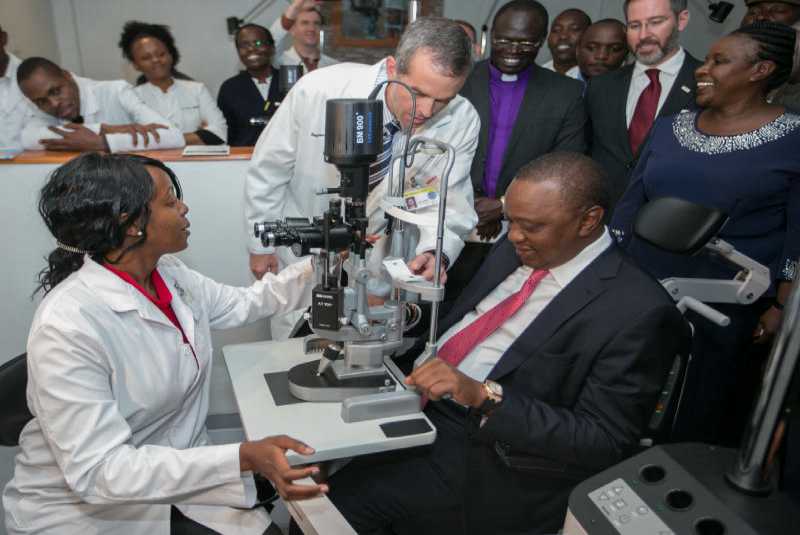×
The Standard e-Paper
Stay Informed, Even Offline

President Uhuru Kenyatta views an eye diagonsis equipment during the commission of the Tenwek Hospital Eye and Dental Center, Bomet County on Wednesday 4th April,2018. [Photo: Standard]
During this year’s World Health Worker Week, I decided to spend a few days as a community health worker (CHW) in order to appreciate firsthand the experiences, they go through in delivering healthcare to their communities.